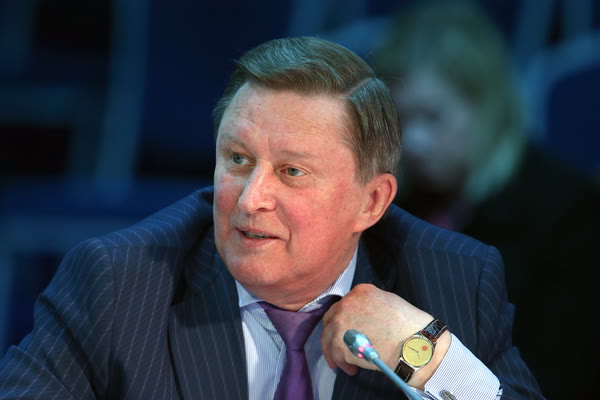
Russia – Finland
KEY CONCLUSIONS
Cooperation between Russia and Finland develops on a mutually advantageous basis
“Dialogue between Russia and Finland has always been distinguished by pragmatism and aspiration to consider each other’s interested in search for a reasonable and mutually acceptable compromise,” Sergei Ivanov, Special Presidential Representative for Environmental Protection, Ecology and Transport.
“Finnish companies invested about 14 billion euro into the Russian market. Our cooperation is mutually beneficial,” Esko Aho, Prime Minister of Finland (1991–1995).
“Last year the scope of our bilateral trade grew by one third or 37% reaching $12.3 billion,” Sergei Ivanov.
Russia and Finland are focused on careful use of natural resources
“Circular economy, bioeconomy, and related problems also present an opportunity for a win-win situation. Russia has huge resources including bioresources, while Finland is probably most famous in the world for the knowledge how to make bioenergy an essential part of economy and environment, as well as for practical application of such knowledge,” Esko Aho.
“Economy and ecology are regarded as a single interconnected complex and such notions as green economy, bioeconomy, circular economy reflect our common desire to use natural resources carefully and reduce anthropogenic impact as much as possible,” Sergei Ivanov.
Production of environmentally friendly goods has a large market potential
“Consumers think don’t just think of what they buy, but also about the way those goods have been produced. They may not be willing to pay a whole lot more, but they do think about it,” Karl-Henrik Sundström, Chief Executive Officer, Stora Enso.
PROBLEMS
Environmentally friendly waste management is highly relevant
“Let’s consider environmental problems. Today we have quite a few of them: insufficient resources, loss of diversity, waste related problems, and last by not least the greenhouse effect,” Esko Aho.
“Serious economy produces a lot of waste,” Alexander Drozdenko, Governor of Leningrad Region.
“Solid waste is an energy resource. The technology which is now being proposed in Moscow Region and RT – grate incineration – produces waste in the form of ash and slag. Currently, companies proposing alternative solutions find that the doors are closed to them”. – Rostislav Baskakov, Business Development Director, Solid Environmental Technologies Oy (SETCleanTech).
Growing demand of the population for materials and resources
“How can we fill the growing appetite of the middle class in materials and resources as well as cope with all the emerging environmental problems? If we continue to use fossil and mineral resources in our economy, it won’t be possible,” Marc Palahi, Director, European Forest Institute.
Insufficient integration of biotechnologies into the general economic process
“Biotechnologies are considered as a separate economic sector, which probably makes it harder to accept and use this concept,” Mika Lintila, Minister of Economic Affairs and Employment of the Republic of Finland.
High cost of energy produced by recycling
“The cost of electric power produce by land fill gas is much more expensive than that of the public power system. Currently, we cover this difference by subsidies from the budget of Leningrad region, but if we plan to take one step further towards advanced processing, we have to develop a federal system to support businesses dealing with waste reclamation and advanced processing,” Alexander Drozdenko.
SOLUTIONS
Environmental technology implementation is profitable for business
“The only way to solve these problems is to make saving the world a profitable business,” Esko Aho.
“Environment should be attractive from the entrepreneurial viewpoint, otherwise neither the richest country nor all countries together will have enough resources to achieve significant results by means of budget funding and regulatory norms alone,” Sergei Ivanov.
“Almost all of our energy is produced from renewable sources,” Joni Hautojarvi, Managing Director, Norilsk Nickel Harjavalta Oy.
“We promote interaction among companies in pulp and paper, forestry, and energy industries. Every year millions of cubic meters of pulp are produced and every year we process millions of tons of waste. At the same time, we produce energy from this biomass. In the future, large number of such projects will provide for high added value of such materials,” Pekka Lundmark, President, CEO, Fortum Corporation.
It is crucial to exchange information and involve the population in environmental projects
“First of all, we should exchange the research results. Secondly, we have to involve the population living in these territories, so people can participate in sustainable development of the industry. Then, it is crucial to exchange knowledge and skills on management of forests and other lands,” Mika Lintila.
“Changing the culture and attitude of people who take part in waste production is a more complicated task,” Alexander Drozdenko.
Bioeconomy needs sustainable regulatory system
“To bring about the era of bioeconomy, we need to develop long term rules for industries. Another important factor is sustainable management of forests, while the third hallmark is investment into innovations,” Karl-Henrik Sundström.
Consumers want to buy ecological goods
“Consumers are not ready to buy products produced with technologies or by companies that are not friendly towards the environment. This is a general trend,” Alexey Mordashov, Chairman of the Board of Directors, Severstal.
“As company representatives, we see a particular demand: all consumers want to know how the products were produced and where the raw material came from. They are willing to study and learn all the information,” Elisa Markula, President, Chief Executive Officer, Tikkurila Oyj
Bioeconomy needs competent specialists
“The demand should drive the offer in regards to specialists that are capable of growing. This interest should be expressed by companies and government authorities that we also work with,” Andrey Sharonov, President, Moscow School of Management SKOLKOVO.
For more information, visit the official website of the Roscongress Foundation Information and Analytical System.








